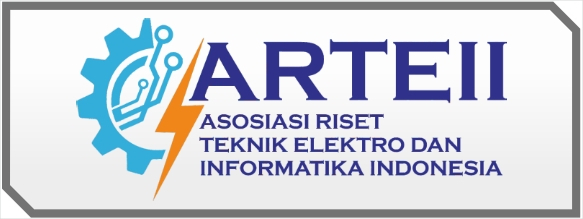The Role of Systemic Enablers in Integrating Knowledge Management for Innovation
DOI:
https://doi.org/10.61978/data.v2i1.717Keywords:
Knowledge Management, Organizational Innovation, Strategic Planning, Digital Transformation, Collaborative Learning, Cross-functional Integration, Competitive AdvantageAbstract
This narrative review explores the critical intersection between Knowledge Management (KM) practices and organizational innovation. As innovation becomes a key determinant of competitive advantage in the digital economy, organizations increasingly rely on KM strategies to harness collective expertise and accelerate problem-solving. The study synthesizes peer-reviewed literature drawn from Scopus, Web of Science, and Google Scholar using targeted keywords and Boolean combinations related to KM, innovation, and organizational learning. Inclusion criteria focused on empirical and theoretical studies that directly connect KM practices with innovation outcomes across diverse sectors and geographical settings. The results reveal that communities of practice, digital knowledge platforms, and strategic alignment of KM are primary drivers of innovation. Factors such as organizational culture, leadership style, and structural flexibility significantly mediate KM effectiveness. Cross-national comparisons highlight disparities in KM integration, with institutions in technologically advanced economies showing higher maturity levels. Challenges identified include resistance to change, underdeveloped digital infrastructure, and compartmentalized organizational silos. The discussion emphasizes policy and institutional strategies to overcome systemic constraints, including fostering leadership in KM and embedding KM within cross-functional collaboration initiatives. This review underscores the strategic importance of KM in enabling sustainable innovation and recommends future research on context-specific implementation and long-term impact. It calls for broader geographic representation and multi-sectoral analysis to develop more inclusive KM frameworks responsive to global innovation demands.
References
Al-Kwifi, O., Farha, A., ElAlfy, A., Almashayekhi, A., & Ahmed, Z. (2025). Exploring the antecedents and consequences of sustainability practices for food consumption and production in the hospitality industry. International Journal of Contemporary Hospitality Management. https://doi.org/10.1108/ijchm-09-2024-1401 DOI: https://doi.org/10.1108/IJCHM-09-2024-1401
Alcalde‐Heras, H., Estensoro, M., & Larrea, M. (2020). Organizational ambidexterity in policy networks. Competitiveness Review an International Business Journal Incorporating Journal of Global Competitiveness, 30(2), 219–242. https://doi.org/10.1108/cr-02-2018-0013 DOI: https://doi.org/10.1108/CR-02-2018-0013
Anand, A., Muskat, B., Creed, A., Zutshi, A., & Csepregi, A. (2021). Knowledge sharing, knowledge transfer and SMEs: evolution, antecedents, outcomes and directions. Personnel Review, 50(9), 1873–1893. https://doi.org/10.1108/pr-05-2020-0372 DOI: https://doi.org/10.1108/PR-05-2020-0372
Cabrilo, S., Dahms, S., Mutuc, E., & Marlin, J. (2020). The role of IT practices in facilitating relational and trust capital for superior innovation performance: The case of Taiwanese companies. Journal of Intellectual Capital, 21(5), 753–779. https://doi.org/10.1108/jic-07-2019-0182 DOI: https://doi.org/10.1108/JIC-07-2019-0182
Christiansen, H., Bauer, A., Fatima, B., Goodyear, M., Lund, I., Zechmeister‐Koss, I., … & Paul, J. (2019). Improving identification and child-focused collaborative care for children of parents with a mental illness in Tyrol, Austria. Frontiers in Psychiatry, 10. https://doi.org/10.3389/fpsyt.2019.00233 DOI: https://doi.org/10.3389/fpsyt.2019.00233
Erdmann, R., Morrin, L., Harvey, R., Joya, L., Clifford, A., & Soroka, S. (2020). Canadian senior renal leaders community of practice: Vulnerable populations with chronic kidney disease—evidence to inform policy. Canadian Journal of Kidney Health and Disease, 7. https://doi.org/10.1177/2054358120930977 DOI: https://doi.org/10.1177/2054358120930977
Heisig, P., Suraj, O., Kianto, A., Kemboi, C., Arrau, G., & Easa, N. (2016). Knowledge management and business performance: Global experts’ views on future research needs. Journal of Knowledge Management, 20(6), 1169–1198. https://doi.org/10.1108/jkm-12-2015-0521 DOI: https://doi.org/10.1108/JKM-12-2015-0521
Herlina, M., Fitrianastasya, F., Ratih, S., & Amandha, M. (2024). Unlocking innovation from within: The power of tacit knowledge and change adaptability in Indonesian internal organisational innovation processes. Economics and Culture, 21(1), 10–28. https://doi.org/10.2478/jec-2024-0002 DOI: https://doi.org/10.2478/jec-2024-0002
Jabbour, M., Curran, J., Scott, S., Guttman, A., Rotter, T., Ducharme, F., … & Johnson, D. (2013). Best strategies to implement clinical pathways in an emergency department setting: Study protocol for a cluster randomized controlled trial. Implementation Science, 8(1). https://doi.org/10.1186/1748-5908-8-55 DOI: https://doi.org/10.1186/1748-5908-8-55
McWilliams, A., Roberge, J., Moore, C., Ashby, A., Rossman, W., Murphy, S., … & Furney, S. (2016). Aiming to improve readmissions through integrated hospital transitions (AIRTIGHT): Study protocol for a randomized controlled trial. Trials, 17(1). https://doi.org/10.1186/s13063-016-1725-2 DOI: https://doi.org/10.1186/s13063-016-1725-2
Milligan, J., Lee, J., Smith, M., Donaldson, L., Athanasopoulos, P., Bassett-Spiers, K., … & Noonan, V. (2018). Advancing primary and community care for persons with spinal cord injury: Key findings from a Canadian summit. Journal of Spinal Cord Medicine, 43(2), 223–233. https://doi.org/10.1080/10790268.2018.1552643 DOI: https://doi.org/10.1080/10790268.2018.1552643
Najda-Janoszka, M., Kajzer‐Bonk, J., Milewska, E., & Wrona, S. (2025). Integrating science, technology, and experimental knowledge for sustainable innovation: A living lab approach to urban biodiversity management. Journal of Entrepreneurship Management and Innovation, 21(2), 33–55. https://doi.org/10.7341/20252123 DOI: https://doi.org/10.7341/20252123
Naqshbandi, M., Meeran, S., & Wilkinson, A. (2022). On the soft side of open innovation: The role of human resource practices, organizational learning culture and knowledge sharing. R and D Management, 53(2), 279–297. https://doi.org/10.1111/radm.12566 DOI: https://doi.org/10.1111/radm.12566
Popa, S., Soto‐Acosta, P., & Palacios‐Marqués, D. (2021). A discriminant analysis of high and low-innovative firms: The role of IT, human resources, innovation strategy, intellectual capital and environmental dynamism. Journal of Knowledge Management, 26(6), 1615–1632. https://doi.org/10.1108/jkm-04-2021-0272 DOI: https://doi.org/10.1108/JKM-04-2021-0272
Sahoo, D., Bui, L., Samantaray, A., Kumar, A., & Kanwal, P. (2025). Examining the role of organizational learning and knowledge sharing in facilitating career transitions and innovation. In Knowledge, Learning, and Innovation, 175–200. https://doi.org/10.4018/979-8-3693-4163-6.ch007 DOI: https://doi.org/10.4018/979-8-3693-4163-6.ch007
Smuts, H., & Merwe, A. (2025). Embedding sustainability: Sociotechnical knowledge management guidelines for digital decarbonization in the Society 5.0 era. Sustainability, 17(3), 953. https://doi.org/10.3390/su17030953 DOI: https://doi.org/10.3390/su17030953
Troisi, O., Visvizi, A., & Grimaldi, M. (2023). Rethinking innovation through Industry and Society 5.0 paradigms: A multileveled approach for management and policy-making. European Journal of Innovation Management, 27(9), 22–51. https://doi.org/10.1108/ejim-08-2023-0659 DOI: https://doi.org/10.1108/EJIM-08-2023-0659
Trudel, M., Marsan, J., Paré, G., Raymond, L., Guinea, A., Maillet, É., … & Micheneau, T. (2017). Ceiling effect in EMR system assimilation: A multiple case study in primary care family practices. BMC Medical Informatics and Decision Making, 17(1). https://doi.org/10.1186/s12911-017-0445-1 DOI: https://doi.org/10.1186/s12911-017-0445-1
Yamada, J., Shorkey, A., Barwick, M., Widger, K., & Stevens, B. (2015). The effectiveness of toolkits as knowledge translation strategies for integrating evidence into clinical care: A systematic review. BMJ Open, 5(4), e006808. https://doi.org/10.1136/bmjopen-2014-006808 DOI: https://doi.org/10.1136/bmjopen-2014-006808
Zahrawi, A., Khashashneh, S., & Althunibat, A. (2025). The impact of customer knowledge management on innovation capability and business performance: Evidence from Jordanian financial services. International Journal of Innovative Research and Scientific Studies, 8(3), 3886–3898. https://doi.org/10.53894/ijirss.v8i3.7401 DOI: https://doi.org/10.53894/ijirss.v8i3.7401






